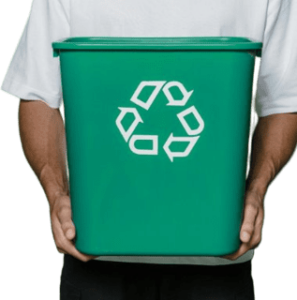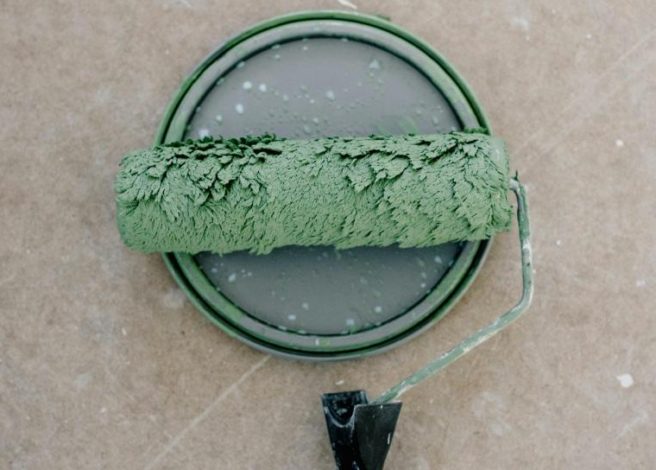Nobody wants to be lied to. Today’s markets often test our trust in health, ingredient, and sustainability claims. They can sway our buying choices. As a food industry pro, you would never want to give false info about what’s in that signature dish that keeps customers coming back (unless, of course, it’s a top-secret family recipe). So why should the packaging that food comes in be any different? Are you (and your customers) being deceived about how that container was made? Are you a victim of the greenwashing of plastic food packaging?
This week, we sat down with Conor Carlin, President of Clefs Advisory LLC. Operating at the nexus of packaging and sustainability, Conor served as President of the Society of Plastics Engineers (2024) and is former General Manager for ILLIG in North America. His expertise spans materials, packaging technologies, policy, commercial strategy, and market intelligence.
Let’s take a deeper dive into what we learned about these wolves in eco-friendly sheep’s clothing.
What Is Greenwashing?
 The term may evoke images of beautiful natural settings. The truth is, it’s a bit more deceptive.
The term may evoke images of beautiful natural settings. The truth is, it’s a bit more deceptive.
The term “greenwashing” or “green sheen” originated in the 1960s, when the hotel industry devised one of the most blatant examples of the practice. They placed notices in hotel rooms asking guests to reuse their towels to save the environment, which resulted in lower laundry costs.
Greenpeace defines “greenwashing” as “A PR tactic used to make a company or product appear environmentally friendly, without meaningfully reducing its environmental impact.”
Consider British Petroleum’s rebranding to “BP” with a green and yellow sunflower logo. This visual shift sent a very different message than “drilling oil out of the ground.” It could be seen as example of a company trying to appear environmentally conscious while its core business remains unchanged.
Think: false promises + taking advantage of sustainability concerns + bold claims + false advertising = PROFIT.
Examples of Greenwashing of Plastic Food Containers
Some companies present misleading information on their food packaging. They create an environmentally friendly image that doesn’t always reflect reality.
They label plastic containers as “biodegradable,” suggesting environmental benefits. Biodegradability, however, is not necessarily an appropriate outcome without considering the broader context. Composting, for example, is biodegradation in a controlled environment, yet composting facilities do not uniformly accept packaging labeled as compostable. Measuring biodegradability is key to ensuring accurate claims, therefore standard testing is required according to the American Society for Testing and Materials (ASTM) and Biodegradable Products Institute (BPI) before companies can make such claims. Many products display “eco-friendly” claims without substantiating evidence or proper certification to back up these environmental assertions.
This type of greenwashing not only deceives consumers, but also makes it more difficult to identify and support companies making genuine environmental improvements. This practice is both misleading and counterproductive to environmental progress.
Aspects to Consider When Selecting Products with Sustainability Claims
Bold Claims: This is the most egregious greenwashing activity. A company may boast that its products are “carbon neutral” without accounting for all their emissions or relying heavily on carbon offsets, which may not effectively reduce overall emissions. “Carbon neutrality” is only one of numerous potential false claims in the greenwashing sea.
Vague Language: Buzzwords like “earth-conscious,” “eco-friendly,” or even simply “green” may be eye-catching. What happens when you look for data, or at least a link or QR code, to verify these claims?
Third-Party Certifications: Trustworthy certifications from reputable organizations such as SCS Global Services or Green Seal can verify the claims.
Transparency: No, we’re not talking about the clarity of the package itself. Companies should provide clear and detailed information about sustainability practices.
Selective Disclosure: This is when a company touts its positive environmental impacts but hides the negatives. It’s like lying by omission.
Nature-Themed Imagery: This is where things get really frustrating. Labels with clean forests, playful animals, and pretty scenery can mislead you. They might suggest the package is eco-friendly without making claims.
How Is This Even Legal?
It’s not. 
The Federal Trade Commission (FTC) Green Guides help ensure that greenwashing is illegal by providing clear guidelines for marketers on how to make truthful and substantiated environmental claims. While the Green Guides themselves are not law, they help businesses comply with Section 5 of the FTC Act, which prohibits unfair or deceptive marketing practices.
When businesses make environmental claims that are fishier than week-old sushi, the FTC can step in and take action. They use these guides like a judge uses a rulebook to determine who’s playing fair and who’s just painting their products with a green brush. This protects both consumers from being duped and honest businesses from being outshined by competitors who play fast and loose with the truth.
Why This Information Is Important for Your Business
You’re not just at risk of losing customer trust. Falling for greenwashed packaging is like paying more for regular ingredients just because they were called “artisanal.” Except here, you’re pouring money into packaging that’s about as green as a stop sign. That’s your hard-earned profit getting tossed in the landfill alongside those “biodegradable” containers that aren’t actually biodegrading, or if they are in an anerobic (oxygen-deprived) environment, are releasing methane.
If your business prides itself on being transparent and eco-friendly, beware of greenwashing. It could harm your reputation. Trust is crucial for any business. Promoting products with misleading environmental credentials erodes consumer trust, ultimately leading to customer loss and significant revenue decline.
Turning This Information Into Action
The food industry is changing fast. Many businesses are still confused by packaging claims.
How can you take the information you learned today and turn it into action for your business? You should follow these four essential steps:
Check Your Current Packaging
- Review all environmental claims on your current packaging.
- Request documentation from your suppliers proving their sustainability claims.
- Look specifically for third-party certifications from organizations like SCS Global Services or Green Seal.
- Document vague terms like “eco-friendly” or “earth-conscious” without supporting evidence.
Take Protective Steps
- List your major retail and food service clients. Then, research their sustainability requirements.

- Start collecting proper certification documentation now before it becomes mandatory.
- Compare current packaging costs with those of certified sustainable options. This will show the true cost differences.
- Review your supplier contracts for sustainability claim guarantees.
Make Informed Changes
- Replace any packaging with unverified claims and properly certified alternatives.
- Look for suppliers who provide clear, documented evidence of their environmental practices.
- Start building relationships with verified sustainable packaging suppliers.
Future-Proof Your Business
- Set up regular supplier audits to verify environmental claims.
- Stay informed about changing retailer requirements and environmental regulations.
- Join industry sustainability groups, like the Sustainable Packaging Coalition (SPC), to stay ahead of trends.
Wiping Away The Falsehoods
Don’t let greenwashed packaging put your business’s reputation on the chopping block. By being real about your packaging claims, you can thrive. Get the right certifications and team up with honest suppliers. This will help you avoid problems. While others catch up to changing industry standards, you’ll show them how it’s done. Innovative businesses know that true sustainability isn’t a trend. It’s the key to long-term success.
Inline Plastics is committed to finding what works best for you, even when that path leads elsewhere. Don’t hesitate to contact us with any questions along the way.
Would you like to know more about Conor Carlin and his work at Clefs Advisory LLC? Connect with him on LinkedIn today.


